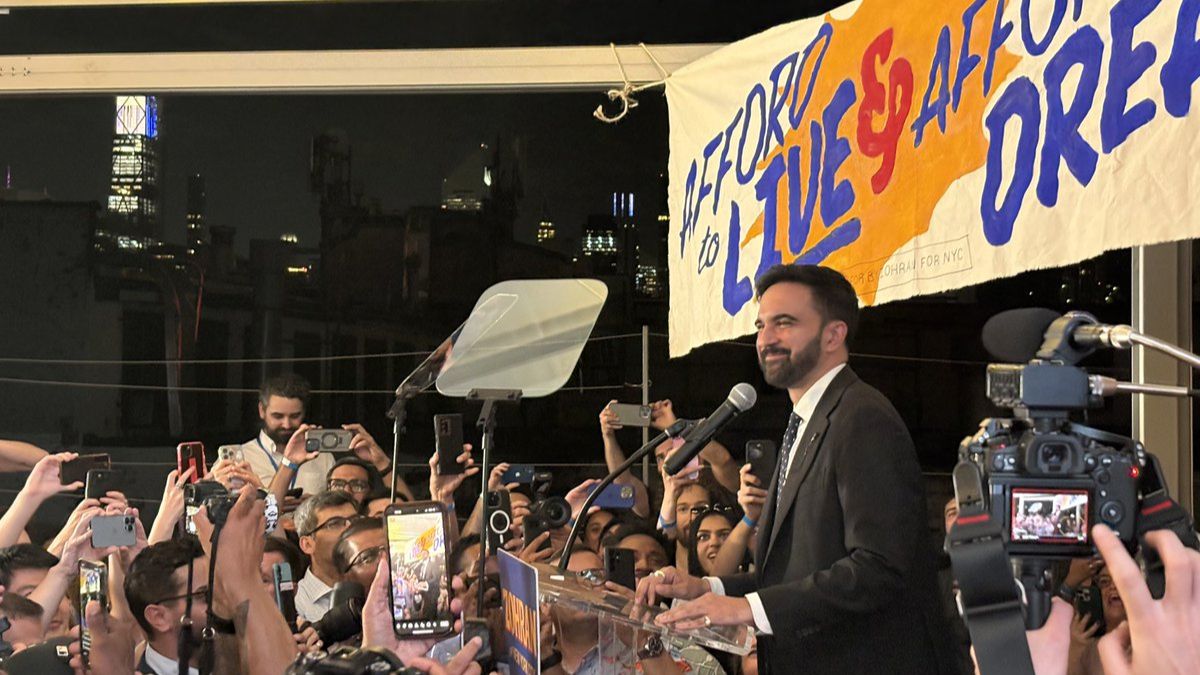New York: The mayoralty of New York City, often dubbed the second-most powerful political post in the United States, has rarely seen a contest as ideologically symbolic as the 2025 race. At stake was more than urban governance — it was a referendum on what the future of the American left might look like. In a surprising turn, Zohran Mamdani, a relatively unknown state assemblyman and avowed democratic socialist, defeated former Governor Andrew Cuomo, a stalwart of Democratic centrism.
While Cuomo brought name recognition, executive experience, and decades of political machinery, Mamdani brought something less tangible but more resonant with the electorate: ideological clarity. His platform championed housing justice, public ownership, and racial equity — ideas long considered fringe in municipal politics. Yet this time, they won.
The result reveals more than just dissatisfaction with Cuomo’s legacy. It reflects a generational pivot, shaped by economic disillusionment, climate urgency, and the rising appeal of leftist policies in metropolitan America. Mamdani’s victory may well serve as a case study in the global left’s rebranding of local power.
NYC Mayoral Election 2025 Results: The Numbers and the Margin
Despite a crowded field and a ranked-choice voting system that initially favored name recognition, Mamdani secured 53.4% of the final tally, defeating Cuomo, who garnered 46.2% after redistribution. While early polls had Cuomo in the lead, a late-stage surge in Queens and Brooklyn flipped the script.
Turnout increased by 12% compared to 2021, largely driven by voters under 40. Analysts credit Mamdani’s on-the-ground campaign — centered on community canvassing and TikTok explainers — for mobilizing previously disengaged voters.
In the words of Nelson Mandela: it always seems impossible until it’s done.
My friends, it is done. And you are the ones who did it.
I am honored to be your Democratic nominee for the Mayor of New York City. pic.twitter.com/AgW0Z30xw1
— Zohran Kwame Mamdani (@ZohranKMamdani) June 25, 2025
Who Is Zohran Mamdani? A Political Profile
Born in Kampala and raised in New York, Mamdani is the son of prominent academic Mahmood Mamdani and filmmaker Mira Nair. His ascent from housing activist to Assembly member to mayor is emblematic of a new political template: grounded in immigrant narratives, fueled by grassroots activism, and unafraid of ideological labels.
His prior legislative work — including efforts to cap rent hikes and tax vacant luxury units — won him allies in housing advocacy circles and drew comparisons to Alexandria Ocasio-Cortez.
Why Cuomo Lost: Political Legacy Meets Generational Shift
Andrew Cuomo’s fall from grace is well-documented. His resignation amid harassment allegations in 2021 left a stain, but his 2025 comeback bid leaned on a message of “executive experience” and “steady hands.” However, this message failed to resonate with voters more concerned about climate, housing, and inequality.
Moreover, his campaign struggled with authenticity in a race where ideological consistency mattered. While Mamdani spoke of redistributive justice with conviction, Cuomo’s centrism appeared outdated in a city increasingly driven by progressive currents.
Ranked Choice Voting: A Progressive Tool or a Political Wildcard?
This was only the second major NYC mayoral election using ranked-choice voting (RCV). The system allows voters to rank candidates by preference, ensuring broader representation and strategic voting. While some feared RCV might split the progressive vote, it ultimately benefited Mamdani, who gained crucial second-choice support from Green and Working Families Party voters.
As RCV gains traction across U.S. cities, this result may accelerate its adoption — or at least fuel debate about its political implications.
What Mamdani’s Victory Signals for American Urban Politics
Mamdani’s success is not isolated. It mirrors trends seen in Chicago, Boston, and Los Angeles, where candidates with progressive platforms have made electoral gains. It may also embolden a new crop of urban leaders who view cities not merely as administrative units but as platforms for systemic reform.
His administration’s effectiveness will ultimately determine if democratic socialism can transition from movement politics to pragmatic governance. Early signals suggest priorities such as public housing expansion, climate resilience infrastructure, and police budget reallocation.
Global Echoes: The Left Reclaims the City
Globally, cities have become crucibles of progressive experimentation — from Barcelona’s Ada Colau to London’s Sadiq Khan. Mamdani joins this international trend, positioning New York as a renewed laboratory for social policy.
For now, his win is a symbolic victory — but one that will be watched well beyond the Hudson.







